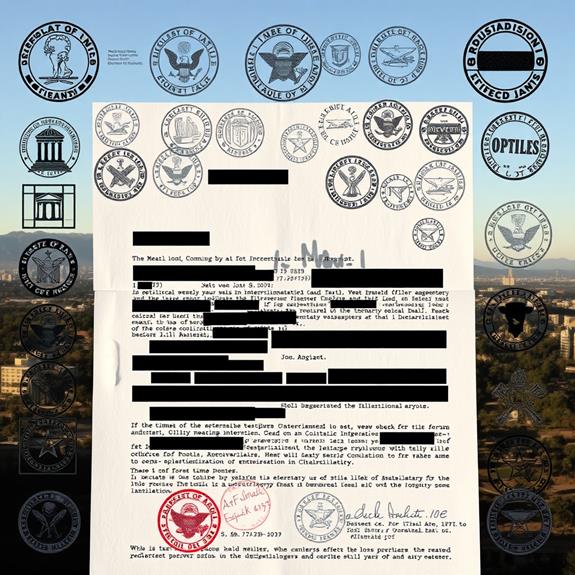When seeking political asylum in Los Angeles, you'll need expert legal guidance to navigate the complex process. Asylum lawyers can help you establish eligibility, meet essential deadlines, and prepare a strong case. They'll assist with gathering evidence, filing the I-589 form, and preparing you for interviews. Your attorney will explain your rights, including the ability to stay in the U.S. while your application is pending. They can also help you overcome challenges like cultural barriers and language difficulties. With proper legal representation, you'll increase your chances of approval and gain support for your path to safety in America. The journey doesn't end there, though.
Understanding Political Asylum

Seeking refuge from persecution, political asylum offers a lifeline to those fleeing danger in their home countries. It's a legal protection granted to individuals who can't return home due to fear of harm based on their race, religion, nationality, political opinion, or membership in a particular social group. Initial consultations are essential for evaluating individual circumstances and identifying grounds for asylum claims. This step helps establish a strategic plan for the application process.
Understanding political asylum is vital if you're considering this path. The process involves proving that you meet the definition of a refugee under U.S. asylum policies. You'll need to demonstrate a well-founded fear of persecution if you return to your country. This fear must be based on past experiences or a credible threat of future harm.
Asylum differs from refugee status in timing and location. While refugees apply for protection from outside the U.S., asylum seekers request it after arriving on U.S. soil or at a port of entry. The application process can be complex, involving detailed documentation and interviews. It's important to know that asylum isn't guaranteed, and decisions are made on a case-by-case basis. Seeking legal assistance can greatly improve your chances of a successful application.
Eligibility for Asylum
To be eligible for asylum in the U.S., you must show that you've faced persecution or have a well-founded fear of persecution based on protected grounds like race, religion, nationality, political opinion, or membership in a social group. You're generally required to apply for asylum within one year of arriving in the U.S., though exceptions exist for extraordinary circumstances. If you're seeking asylum at a port of entry or after being apprehended, you'll undergo a credible fear interview to determine if you have a significant possibility of establishing asylum eligibility.
Persecution and Protected Grounds
Eligibility for asylum hinges on demonstrating a well-founded fear of persecution in your home country. Persecution types can include physical harm, threats, unlawful detention, or severe discrimination. To qualify, you must show that this persecution is based on one of the protected categories:
- Race
- Religion
- Nationality, ethnicity, or social group
- Political opinion
Your fear must be both subjectively real to you and objectively reasonable based on the conditions in your country. It's essential to provide evidence that supports your claim, such as personal testimony, witness statements, or country reports. The persecution you've experienced or fear must be carried out by your government or groups the government can't or won't control. Remember, general hardship or economic difficulties don't typically qualify as persecution for asylum purposes. If you've been persecuted in the past, it may create a presumption of future persecution. However, if conditions in your country have notably changed, this presumption can be rebutted. Consult with an experienced asylum attorney to assess your case's strengths and challenges.
One-Year Filing Deadline
While understanding the grounds for persecution is vital, it's equally important to be aware of the time constraints for filing your asylum claim. In the United States, you must generally file your asylum application within one year of your last arrival in the country. This deadline is strictly enforced, and failing to meet it can result in your application being denied.
However, there are some exceptions to this rule. You may be eligible for filing exceptions if you can demonstrate extraordinary circumstances that prevented you from applying within the one-year timeframe. These circumstances could include severe illness, legal disability, or ineffective assistance of counsel. Additionally, changed conditions in your home country that materially affect your eligibility for asylum might qualify you for deadline extensions.
It's essential to document any reasons for late filing thoroughly. If you believe you qualify for an exception, you'll need to provide evidence supporting your claim. This could include medical records, news articles about changing conditions in your country, or other relevant documentation. Consulting with an experienced asylum attorney can help you navigate these complex requirements and increase your chances of a successful application.
Credible Fear Assessment
A essential step in the asylum process is the credible fear assessment. This evaluation determines if you have a credible fear of persecution or torture if returned to your home country. During this assessment, an asylum officer will interview you to gauge the validity of your claim. Experienced attorneys can provide significant support during this process, ensuring you're well-prepared for the interview and your rights are protected.
The credibility determination is based on several factors:
- Consistency of your statements
- Specificity of your experiences
- Plausibility of your account
You'll need to provide detailed information about your fear and the reasons behind it. The officer will ask questions about your background, the threats you've faced, and why you can't return home. It's essential to be honest and thorough in your responses.
If the officer finds that you have a credible fear, you'll be referred to an immigration judge for a full hearing. If not, you can request a review of the decision. Remember, the credible fear assessment is just the first step. It doesn't guarantee asylum, but it opens the door for further consideration of your case.
The Application Process

When you're ready to apply for asylum, you'll need to gather essential documentation to support your case. This includes your personal identification, evidence of persecution, and any other relevant materials that strengthen your claim. It's vital to prepare thoroughly for your asylum interview, as this is your opportunity to present your case and answer questions about your experiences.
Required Documentation
Gathering the required documentation is an essential step in the political asylum application process. You'll need to compile various document types and application forms to support your case. These documents serve as evidence of your claim and help establish your eligibility for asylum.
The key documents you'll need to prepare include:
- Form I-589, Application for Asylum and for Withholding of Removal
- Proof of identity, such as a passport or birth certificate
- Evidence supporting your claim of persecution or fear of persecution
You should also gather any additional documents that demonstrate the conditions in your home country, such as news articles, human rights reports, or personal testimonies. It's important to provide certified translations for any documents not in English.
Interview Preparation
After submitting your application and required documents, you'll need to prepare for the asylum interview. This vital step in the process requires thorough preparation. Start by familiarizing yourself with common interview techniques used by asylum officers. Practice answering potential questions about your case, focusing on clarity and consistency in your responses.
Consider participating in mock interviews with your lawyer or a trusted friend. These simulations can help you become more comfortable with the interview format and improve your ability to articulate your experiences. Pay attention to your body language during these practice sessions, as nonverbal cues can impact the interviewer's perception of your credibility.
Stress management is essential for maintaining composure during the interview. Develop relaxation techniques, such as deep breathing or visualization, to help calm your nerves. Get plenty of rest the night before and arrive early to the interview location. Remember to speak clearly and maintain eye contact with the interviewer. If you don't understand a question, don't hesitate to ask for clarification. Stay focused on providing accurate and relevant information throughout the interview.
Preparing Your Asylum Case
In preparation for your asylum case, thorough documentation and evidence gathering are essential steps. It's vital to dispel common asylum myths and focus on solid application tips. You'll need to collect all relevant documents that support your claim, including personal statements, police reports, medical records, and any other evidence that demonstrates the persecution you've faced or fear in your home country.
When building your case, consider these key elements:
- Credibility: Confirm your story is consistent and matches the evidence you provide.
- Specificity: Offer detailed accounts of events, including dates, places, and names when possible.
- Timeliness: File your application within one year of arrival in the U.S., unless you qualify for an exception.
You should also gather country condition reports that support your claim. These can include human rights reports, news articles, and expert testimonies about the situation in your home country. Remember, the burden of proof is on you to demonstrate that you meet the legal definition of a refugee. Work closely with your attorney to organize your evidence and craft a compelling narrative that clearly shows why you need asylum protection.
Legal Representation in Los Angeles

Los Angeles, a diverse metropolis, offers numerous options for legal representation in asylum cases. You'll find a range of resources to help with your asylum application, from private attorneys to non-profit organizations. Many local organizations provide legal aid and immigration resources specifically for asylum seekers. Experienced attorneys specializing in immigration law can provide deep understanding of asylum cases and offer compassionate counsel to address the emotional aspects of your journey.
When seeking representation, start by researching attorneys who specialize in asylum cases. Many offer free or low-cost consultations to assess your case. Take advantage of these meetings to find a lawyer you're comfortable with. Legal workshops are another valuable resource, offering insights into the asylum process and your rights.
Community support plays an essential role in your journey. Local organizations often provide refugee services and cultural integration assistance. These groups can connect you with other asylum seekers and help you navigate life in Los Angeles.
Remember to explore all available options. Some law schools have immigration clinics that offer pro bono services. Additionally, the Los Angeles Immigration Court provides a list of free or low-cost legal service providers. By utilizing these resources, you'll be better equipped to present a strong asylum case.
Asylum Interview Preparation
Once you've secured legal representation, your focus should shift to preparing for the asylum interview. This vital step requires thorough preparation and practice. Your lawyer will guide you through asylum interview techniques, ensuring you're well-equipped to present your case effectively.
To maximize your chances of success, consider these key preparation steps:
- Gather and organize all relevant documents, including identification, proof of persecution, and supporting evidence.
- Review your asylum application thoroughly, ensuring consistency between your written statements and verbal responses.
- Participate in mock interview sessions with your attorney to familiarize yourself with the process and potential questions.
During these practice sessions, you'll learn how to articulate your experiences clearly and concisely. Your lawyer will help you understand the types of questions you might face and how to respond effectively. They'll also teach you techniques for managing stress and maintaining composure during the interview.
Challenges and Common Pitfalls

Maneuvering the asylum process presents several challenges and potential pitfalls that applicants should be aware of. Cultural barriers can make it difficult to understand the legal system, leading to misunderstandings and errors. Misinformation risks are high, especially when relying on unofficial sources or outdated advice. The emotional toll of reliving traumatic experiences during interviews can be overwhelming.
Legal jargon often confuses applicants, making it hard to grasp important concepts and requirements. Language challenges may hinder effective communication with lawyers and officials, potentially affecting the outcome of the case. It's vital to seek professional translation services when needed.
Many applicants underestimate the importance of community support. Isolation can lead to missed opportunities and increased stress. Connecting with local immigrant organizations can provide valuable resources and guidance.
Common pitfalls include missing deadlines, providing inconsistent information, or failing to gather sufficient evidence. Some applicants may also inadvertently harm their cases by traveling back to their home country or contacting individuals who could compromise their safety. To avoid these issues, work closely with experienced asylum lawyers and stay informed about the process.
Rights of Asylum Seekers
Throughout the asylum process, you're entitled to specific rights that protect your well-being and legal interests. These asylum rights are essential for ensuring fair treatment and due process. You have the right to apply for asylum regardless of your immigration status or how you entered the United States. This protection extends to your immediate family members as well.
Your legal protections include:
- The right to an interpreter if you're not fluent in English
- The right to legal representation, though at your own expense
- The right to a hearing before an immigration judge
You're also entitled to remain in the U.S. while your application is pending. This means you can't be deported until a final decision is made on your case. Additionally, you have the right to work in the U.S. after your asylum application has been pending for 150 days. It's important to understand that these rights come with responsibilities. You must attend all scheduled interviews and hearings, provide accurate information, and comply with all immigration laws and regulations during your stay in the U.S.
Life After Asylum Approval

After receiving asylum approval, you'll find yourself steering through a new chapter in your life in the United States. This period involves significant life adjustments as you work towards community integration. You'll need to focus on cultural adaptation, which may present challenges but also opportunities for personal growth.
Employment opportunities will be a key aspect of your new life. You'll have the right to work and can explore various career paths. It's important to seek out public services that can assist with job placement and training. As you settle in, don't neglect your mental health. The asylum process can be emotionally taxing, so consider seeking emotional support through counseling or support groups.
Family reunification may be possible, allowing you to bring certain family members to join you in the U.S. This process requires careful planning and patience. Throughout your journey, remember that community resources are available to help with various aspects of your new life, from language classes to healthcare access. Your success in adapting to life after asylum approval will depend on your resilience and willingness to embrace new experiences.

